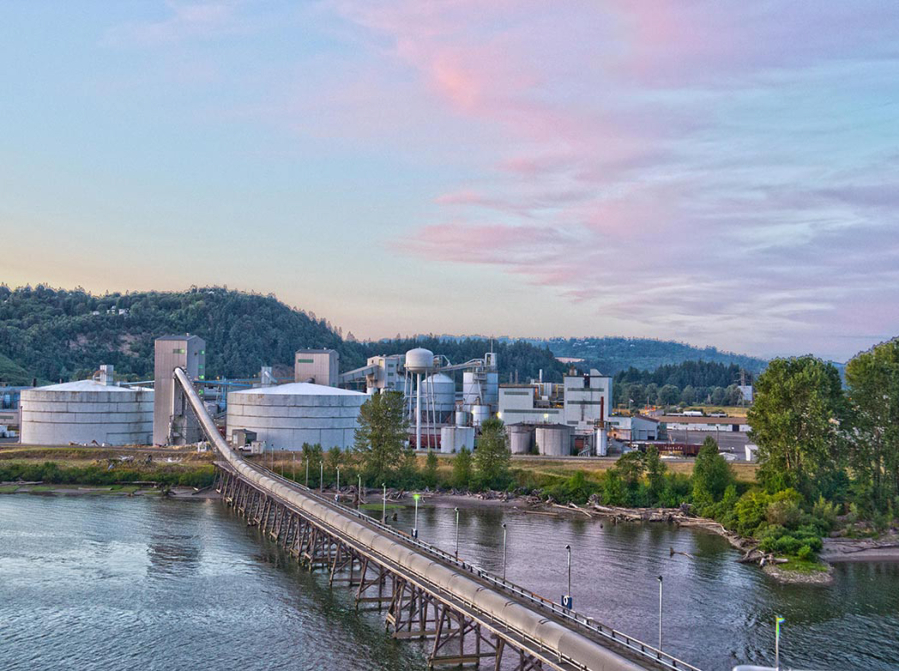Washington's Millenium Bulk Terminals Lays Off 15 Percent of Employees

November 15, 2018 - Already inundated by lawsuits and fighting to keep its Longview, Washington coal terminal proposal alive, Millennium Bulk Terminals Wednesday confirmed that it has laid off 15 percent of its Longview employees.
The cuts come about two weeks after Millennium announced that CEO Bill Chapman retired. But the company says it still is committed to the Longview project, which it has spent nearly seven years and about $15 million trying to get permitted.

Current Millennium Bulk Terminals buildings are seen from the Longview waterfront, looking north.
Photo by Millennium Bulk Terminals
“Millennium Bulk Terminals-Longview has been forced to release 15 percent of its workforce because of the lack of timely and fair permitting decisions by Washington State government agencies. We deeply regret the impact this has on our employees and their families, who have formed the core of our support in the community. (Millennium) remains committed to permitting, construction, and operation of the new coal export terminal and the family wage jobs it will create for people in Southwest Washington,” Senior Vice President of External Affairs Wendy Hutchinson said in a prepared statement Wednesday.
While Millennium would not disclose how many employees were laid off, The Daily News confirmed that Senior Vice President of Business Development Peter Bennett is among them. The raw number of layoffs, given the small size of the Longview workforce, likely is in the single digits.
The company wants to build the $680 million project at the former Reynolds Metals aluminum smelter site. It says it would generate $5.4 million in annual state and local taxes and employ 1,000 workers to build and about 120 to 130 permanent workers at full operation.
The terminal would ship 44 million tons of Rocky Mountain coal to Asia annually, requiring eight trains daily to haul the coal to Longview.
Environmental groups argue the terminal would harm air quality, water, fish and health, and contribute to global climate change. The project has become embroiled in a legal battle after the state Department of Ecology denied the project a key water quality permit, citing health impacts caused by locomotive diesel exhaust, traffic and other problems.
Millennium contests the those findings, saying that the state’s analysis of impacts is skewed by anti-coal bias.
A lawsuit filed by Millennium’s parent company, Lighthouse Resources, against Gov. Jay Inslee’s administration garnered national attention after six states sided with Lighthouse and six states joined to defend Inslee. The plaintiffs argue that, in denying permits for the project, the state is interfering with interstate commerce.
An Ecology spokesman said the agency hadn’t heard anything about Millennium’s downsizing and declined to comment.
The U.S. coal industry has been desperately seeking overseas markets because U.S. domestic coal production is falling, declining about 25 percent from 2011 to 2017, according to the U.S. Energy Information Agency.
“Millennium, and Millennium’s parent company, Lighthouse Resources, will continue to pursue legal, and other strategies, to achieve its permits. We are committed to building our coal export terminal in accordance with all local, state and federal standards,” Hutchinson continued in a statement.

